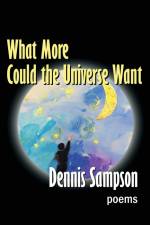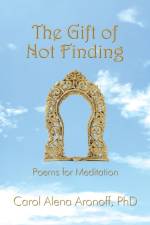av Bruce Lawder
287
The shorelines of these poems are not those of the Atlantic and the Pacific, framing one mighty and dominant land mass, that of the United States, "from sea to shining sea", but rather those of the great continental divide, the two sides of the Atlantic separating "old" Europe from what was once called by some "The New World," two land masses distinct ever since the two tectonic plates began to drift apart. I know both continents intimately. I was born and raised and had my first adult experiences in the United States, on the Eastern Seaboard, and I now divide my time between Switzerland and France, and the poems in this volume shift, or travel, from place to place, residing however temporarily in the city and the country, moving from continent to continent, where exile and homecoming are somehow always one.Bruce Lawder is not a fan of binary divisions. When he first began to write poems - and at the same time to read about what was then called "the new poetry" - he discovered that he had to have two separate anthologies of "contemporary verse", at the very least, each exclusive of the poets in the other: one devoted to people writing in "open" forms and opposed, or "closed", one might say, to rhyme and meter, the other devoted to poets apparently blind and deaf to the varieties of "free verse" of any sort and whose idea of form found expression only in rhyme and meter. He loathed this opposition then, and I still do. In my own work, He vowed that he would let the impulses to create a poem have the freedom to find shape in whatever particular form seemed necessary, and enjoy the variety of language just as we celebrate, and simply by stepping outside, the diversity of the world and all its songs.The darkness and divisions of our day, of war and hatred, of prejudice and political turmoil, are not without response in these poems, but there is also a celebration of something else, something greater, still available to us, a slower, geological time, not only of the earth but of the air, an attentiveness invigorated by the imagination, where the bedrock under our feet supports our wanderings and lets us look, and not alone, at such wonders as the burning nettle and the red admiral butterfly, the fleeting reflections in the rain on the streets of New York and the magnificent stones of Notre Dame in Paris, the peregrinations of the snail and the stained-glass colorings of autumn leaves anywhere.













